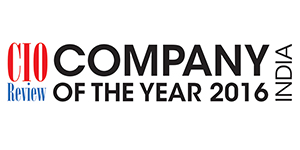 Manufacturers hoping to improve the efficiency of their globally dispersed production processes must confront a slew of product development challenges in an increasingly competitive environment. Product Lifecycle Management (PLM) can effectively address this and help to drive better product development performance by managing product-related data processes and projects. While smaller companies may be able to control, access, and share product data with relatively simple Product Data Management (PDM) tools, larger manufacturers rely on full featured PLM systems that help automate processes and share data across global supply chains. However, these benefits tend to be overshadowed by problems akin to technical complexities, high application implementation costs, evasive returns on investment and the overall business transformation that enterprises need to accommodate while adopting PLM. With prime focus on these issues, Bangalore headquartered PTC brings together a PLM framework that offers a full range of capabilities to help manufacturers increase business value and improve the product development cycle.
Manufacturers hoping to improve the efficiency of their globally dispersed production processes must confront a slew of product development challenges in an increasingly competitive environment. Product Lifecycle Management (PLM) can effectively address this and help to drive better product development performance by managing product-related data processes and projects. While smaller companies may be able to control, access, and share product data with relatively simple Product Data Management (PDM) tools, larger manufacturers rely on full featured PLM systems that help automate processes and share data across global supply chains. However, these benefits tend to be overshadowed by problems akin to technical complexities, high application implementation costs, evasive returns on investment and the overall business transformation that enterprises need to accommodate while adopting PLM. With prime focus on these issues, Bangalore headquartered PTC brings together a PLM framework that offers a full range of capabilities to help manufacturers increase business value and improve the product development cycle.Established in 1985, PTC has designed a comprehensive PLM platform that encompasses a number of modules such as BOM management, Change Management, Configuration Management, Document Management, Product Platforms, Project Management, Team Collaboration, and Manufacturing Planning, to name a few. This system is aimed at enabling businesses of every size and in every industry manage all aspects of the product development cycle, right from conceptualisation through service to product retirement.“Manufacturers today are driven to innovate and bring products to the market at an ever-increasing pace. PTC aids them in addressing a multitude of product development challenges in order to maintain a competitive advantage” claims Kalyan Sridhar, Country Manager and VP, PTC India
Focusing on Quality and Visibility
To alleviate cost pressures and complexities for different manufacturing segments and help them gain sustained product and service advantage, PTC brings their trademark product, Windchill in the space of Product Lifecycle Management. Recognising that quality is a top concern among nearly half of all CXO’s in discrete manufacturing, the company believes that it’s critical to catch potential quality, reliability, and safety issues as early as possible during product design and development, before much of the product has been finalized. PTC’s Windchill thus delivers vital predictive reliability and risk methods integrated with the product bill of materials and engineering change processes central to PLM, in order to drive out product quality issues sooner. A synchronized engineering bill of materials and the ability to drive engineering change in PLM from quality analyses ensures both data and process integration while allowing visibility and accountability, between engineering and quality teams. Thus, Windchill with its robust, high-performing architecture, supports all product content and business processes throughout the product and service lifecycles.
Its PLM solutions work in sync with the IoT platform and its ability to work in an internet-based, distributed design environment, serve as its differentiating factor in the market.
Another factor which has helped PTC gain more favour among its clientele is the availability of PLM on Cloud. Based on Windchill and deployed as PTC PLM Cloud, this flexible SaaS solution is designed with a web-based approach to PLM, increasing team collaboration and product data sharing. As a result, product development is accelerated and design teams that are stretched across different locations, working with any CAD systems including AutoCAD, Creo, or SolidWorks, are allowed better coordination with partners and suppliers.
Enabling PLM for the Retail Industry
In order to ensure maximum benefits of PLM for the retail market, PTC has developed PTC FlexPLM to help leading retail, footwear and apparel companies shorten cycle time and deliver on cost products. This Next Generation solution enables companies to quickly implement industry best practices which are developed with market leading retailers and brand owners to achieve rapid time-to-value with pre-configured, out-of-the-box software. The software brings together a comprehensive set of capabilities,providing line planning, specification management, merchandising and other essential PLM capabilities that allow you to manage your company’s complete assortment of products while bringing more innovative and profitable solutions to the market in real time.
Future Roadmap
With a far-reaching portfolio of solutions, PTC has gained momentum in the enterprise applications solutions domain and hopes to utilise this expertise to create new innovations within the industry. To bring this about, the company has devised a three part strategy. Firstly, PTC intends to offer true product lifecycle management by not only helping the customers develop the product but connect, monitor, operate and service them as well. Secondly, the company plans to promote ThingWorx- an IoT specific development platform which will enable customers to develop their own innovative applications, helping differentiate their business and realize strong business value. Lastly, PTC endeavours to develop new solution opportunities enabled by the connectivity and condition monitoring capabilities provided by ThingWorx. Through these different ventures, PTC hopes to establish itself as a leading service provider in the industry in the upcoming future.

PTC’s Windchill delivers vital predictive reliability and risk methods integrated with the product bill of materials and engineering change processes central to PLM
Another factor which has helped PTC gain more favour among its clientele is the availability of PLM on Cloud. Based on Windchill and deployed as PTC PLM Cloud, this flexible SaaS solution is designed with a web-based approach to PLM, increasing team collaboration and product data sharing. As a result, product development is accelerated and design teams that are stretched across different locations, working with any CAD systems including AutoCAD, Creo, or SolidWorks, are allowed better coordination with partners and suppliers.
Enabling PLM for the Retail Industry
In order to ensure maximum benefits of PLM for the retail market, PTC has developed PTC FlexPLM to help leading retail, footwear and apparel companies shorten cycle time and deliver on cost products. This Next Generation solution enables companies to quickly implement industry best practices which are developed with market leading retailers and brand owners to achieve rapid time-to-value with pre-configured, out-of-the-box software. The software brings together a comprehensive set of capabilities,providing line planning, specification management, merchandising and other essential PLM capabilities that allow you to manage your company’s complete assortment of products while bringing more innovative and profitable solutions to the market in real time.
Future Roadmap
With a far-reaching portfolio of solutions, PTC has gained momentum in the enterprise applications solutions domain and hopes to utilise this expertise to create new innovations within the industry. To bring this about, the company has devised a three part strategy. Firstly, PTC intends to offer true product lifecycle management by not only helping the customers develop the product but connect, monitor, operate and service them as well. Secondly, the company plans to promote ThingWorx- an IoT specific development platform which will enable customers to develop their own innovative applications, helping differentiate their business and realize strong business value. Lastly, PTC endeavours to develop new solution opportunities enabled by the connectivity and condition monitoring capabilities provided by ThingWorx. Through these different ventures, PTC hopes to establish itself as a leading service provider in the industry in the upcoming future.






